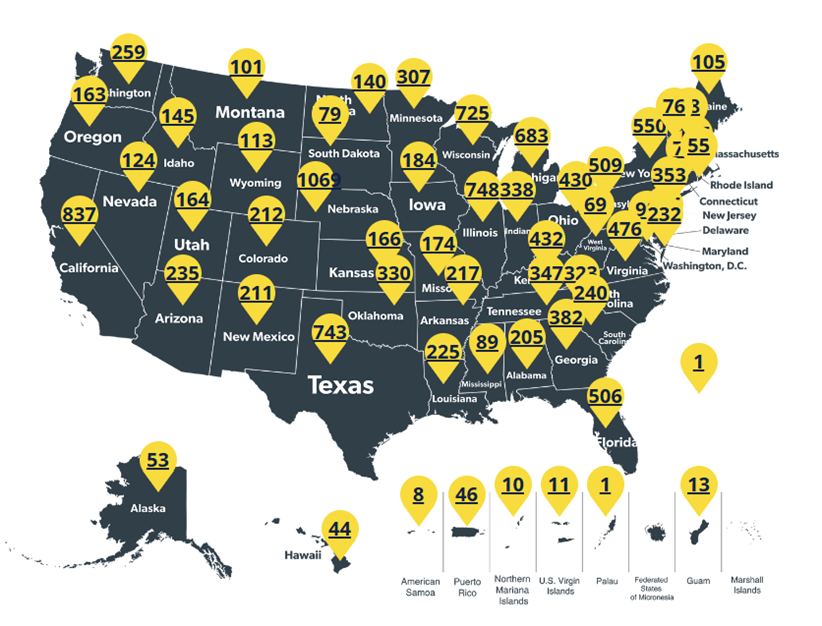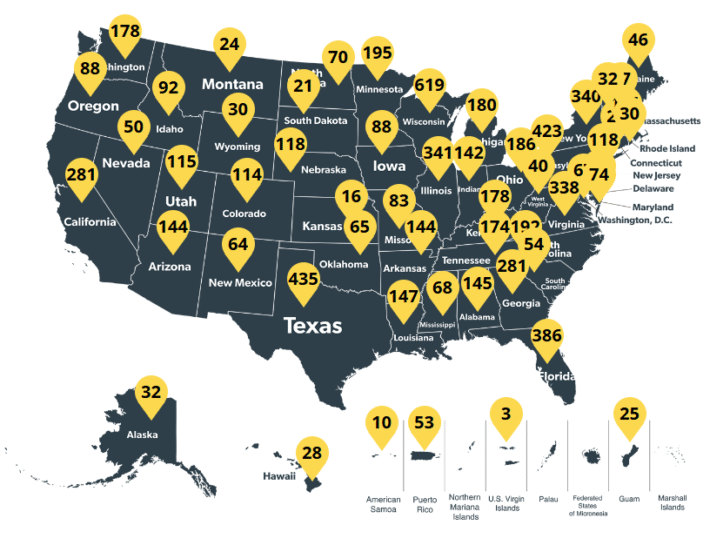Over the past five years, TACQE has partnered with vocational rehabilitation (VR) professionals and community organizations to strengthen services that lead to meaningful employment for people with disabilities. Through practical tools, targeted training, and proven strategies, we’ve worked together to build capacity and improve outcomes.
Our focus has remained steady: support professionals, strengthen practices, and share what works. As the project winds down in September 2025, we’re taking time to recognize the progress we’ve made and, most importantly, the powerful impact of collaboration.
Below is a snapshot of our shared achievements. Each number represents more than just data—it reflects real connections, valuable learning, and lasting change.
Reach and Engagement
Since launch, our website has been a central hub for VR professionals across the country. Thanks to your engagement:
1.1 million total website visits.
![]() 15,081 total active website members.
15,081 total active website members.
Visitors from all U.S. states and territories.
Top TACQE pages:
Member Login - 115,088 visits.
Member Dashboard with 77,111 visits.
Home Page with 75,191 visits.
Training Home Page with 65,783 views.
Downloads and views reflect real-world use:
112,326 total resource downloads.
2,852 views of our Quality Employment Comprehensive Review – White Paper and research summaries.
Map of QE Website Members
Anyone can create a free account on the QE website to register and track training topics, access CRC or Training Completion Certificates, and save favorite content.
As of July of 2025, we have 15,081 members of the QE website!

Toolkits: Research to Practice
9 total toolkits.
5,260 total downloads and 1,555 total views.
Most downloaded toolkits:
VR Outreach Guide with 903 downloads.
Career Pathways Toolkit with 825 downloads.
Business Relations Blueprint with 715 downloads.
Outreach and Resource Guides
14 outreach guides published.
17 resource guides published.
5,120 total views.
Most viewed guides:
Outreach Planning and Resources Guide with 428 views.
Veterans Outreach Guide with 407 views.
Native American Population Outreach Guide with 386 views.
Factsheets and Research Summaries
29 factsheets published.
27 research summaries published.
9,390 total downloads and 25,297 total views.
Most viewed:
Supported Employment 101 - Factsheet with 914 views.
Hispanics with Disabilities and Employment - Factsheet with 790 views.
Training: Growing Skills, Advancing Practice
238 trainings offered.
52,896 total participants.
Topics covered included artificial intelligence in VR, career pathways, employer engagement, and strategies to support people with specific disabilities, to name a few.
Audience: Vocational rehabilitation professionals, community service providers, and employers.
Feedback has been overwhelmingly positive. One participant shared:
“All of the trainings I have taken through this platform have been great. They are very complete and provide important information for working with individuals with disabilities.”
~ Participant
TACQE National Symposium on Quality Employment
Our annual Symposium brought it all together each year—highlighting evidence-based practices, partnerships, and forward momentum.
![]() 7,495 total attendees over 3 years.
7,495 total attendees over 3 years.
202 speakers from across the country.
Attendees from agencies across the United States.
Keynote and session feedback was strong.
One attendee noted:
"This is a very good conference with dedicated professionals coming together alongside community partners. It’s a challenging time to be in rehabilitation, and we’re here to support each other and find ways to adapt.”
~ Michael Accordino, Program Director of Springfield College Clinical Mental Health
Counseling Program
Map of Symposium Registered Attendees

Publications
Findings from the White Paper were published in four peer-reviewed journals, including:
What These Numbers Show
These numbers tell a story of collaboration, commitment, and impact. They show how evidence-based tools, accessible resources, and strong partnerships can strengthen the work of VR professionals and improve outcomes for people with disabilities.
As the project ends, our work continues—through the people, practices, and systems strengthened along the way.

